Treatment Center for Thalassemia and Hereditary Hemolytic Disorders – Sana’a
About the Treatment Center – Sana’a
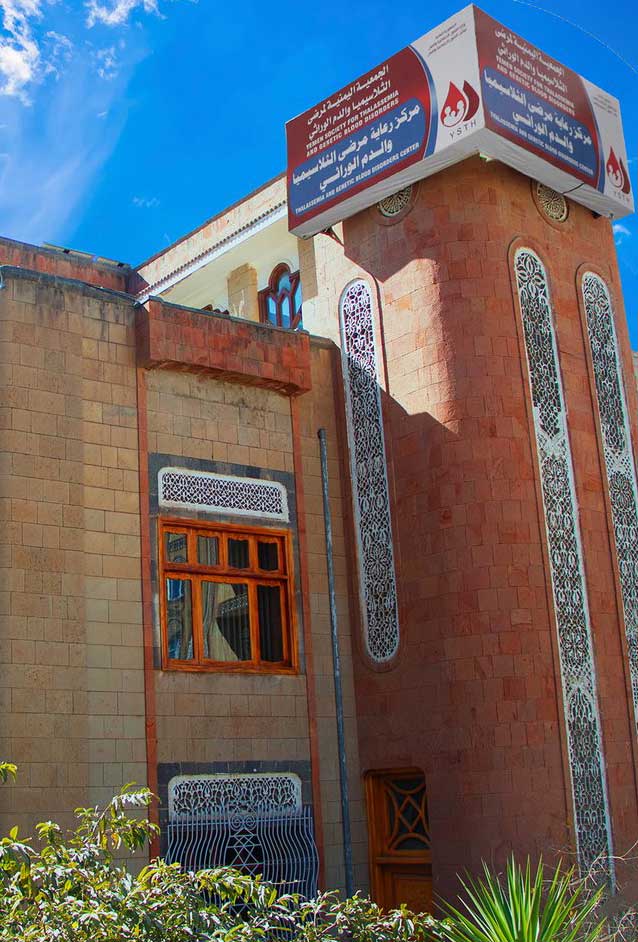
The Treatment Center receives patients from various governorates and is the only specialized facility in the capital, Sana’a. It is considered the leading center nationwide in terms of the quality of services provided. These include medical consultations, diagnosis, laboratory tests, ultrasound imaging, nursing care, blood transfusions, and dispensing available essential medications on a daily basis. The center also carries out psychosocial support activities and educates patients’ families and visitors about thalassemia and hereditary blood disorders, including prevention methods.
Critical cases are also referred to public and private hospitals to receive specialized services such as blood transfusions, inpatient care, surgical operations, advanced diagnostics, and other necessary treatments—through a structured referral system.
The center is committed to continuous improvement and to delivering high-quality services that meet the needs and expectations of patients and their families.
Departments of the Treatment Center
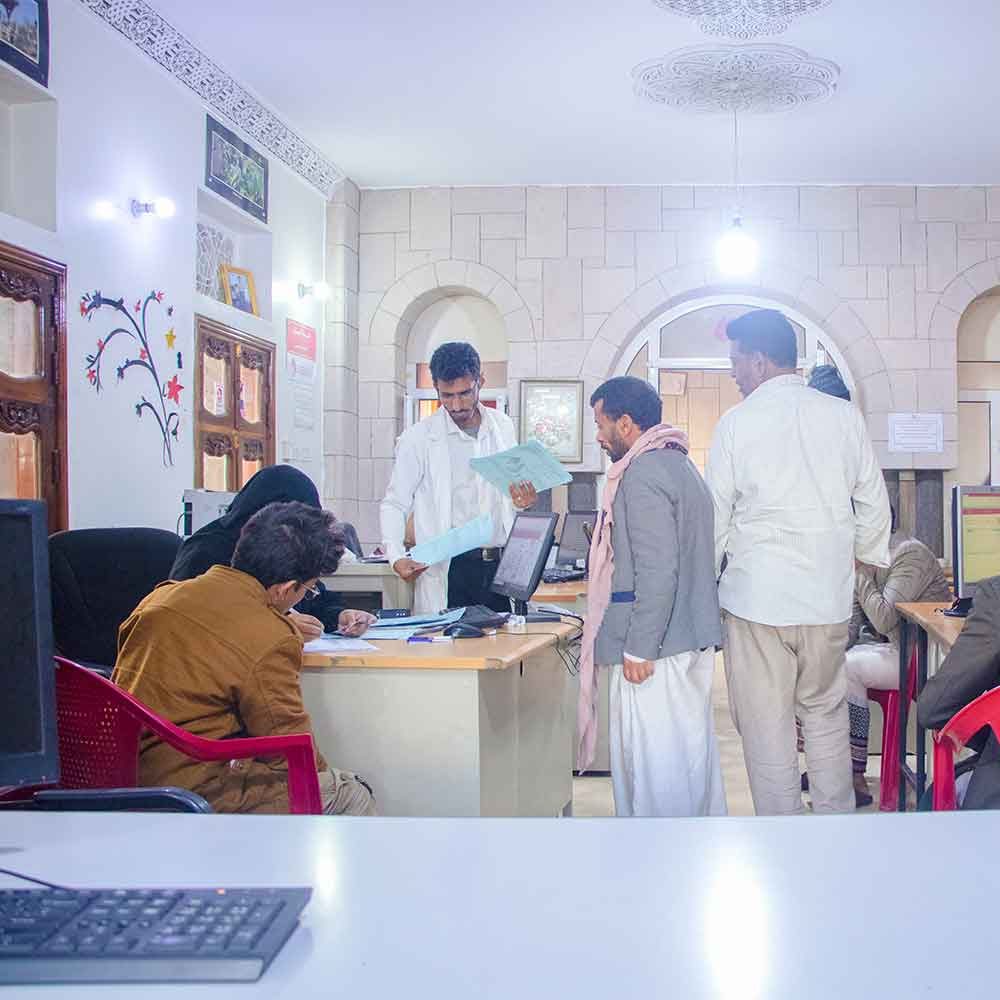
Statistics and Patient Affairs
This department is responsible for collecting patient data and converting it into statistics and indicators that help the center determine the needs for medications, solutions, and medical supplies. These data serve as a vital resource for providing relevant authorities and researchers with the necessary information for conducting studies related to thalassemia and hereditary blood disorders.
The department also receives and registers new patients, collecting their data through a specific form after presenting the laboratory diagnosis approved by a physician. It completes the patient’s file and manages the daily flow of returning patients. All patient data is entered into an electronic system connected to all departments, ensuring that all information about registered patients at the treatment center is accessible and up-to-date.
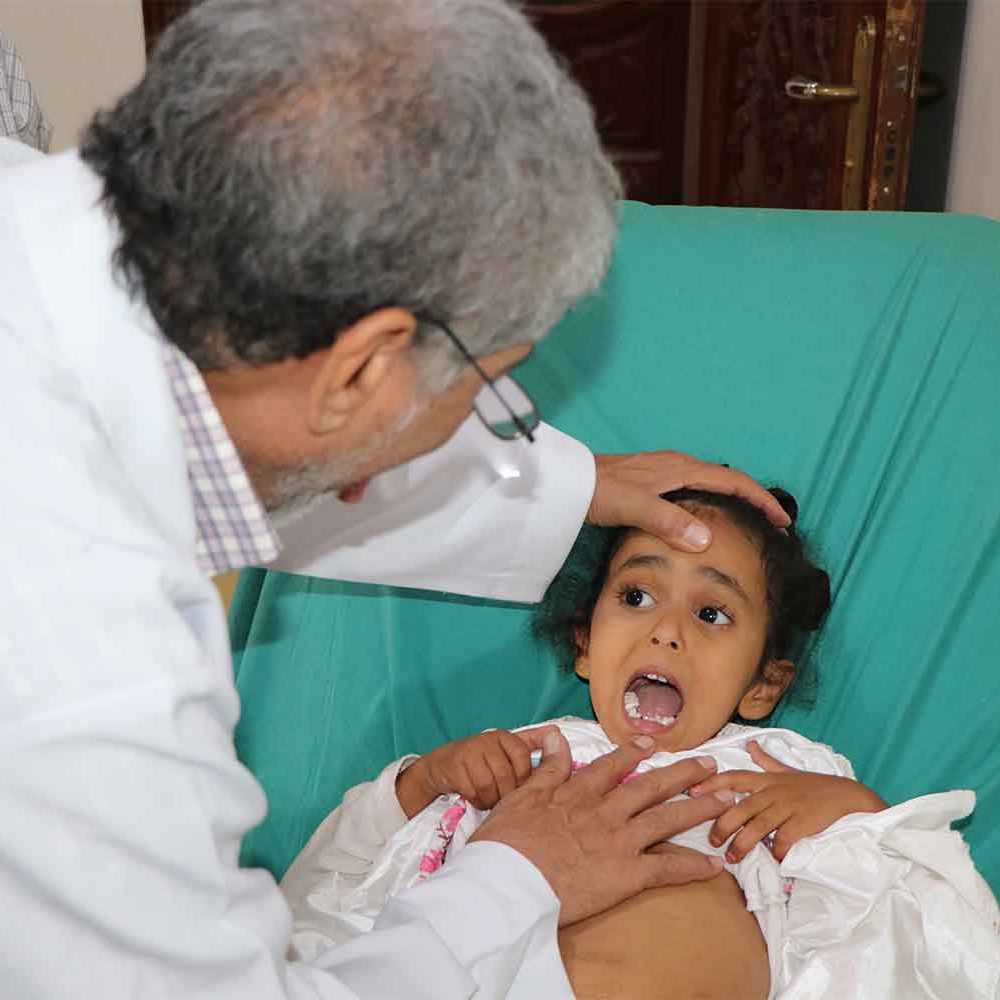
Clinics
The clinics serve as a cornerstone of the treatment center due to the vital role of consultants and physicians in examining patients, diagnosing conditions, prescribing necessary medications, providing follow-up care, and referring cases when needed.
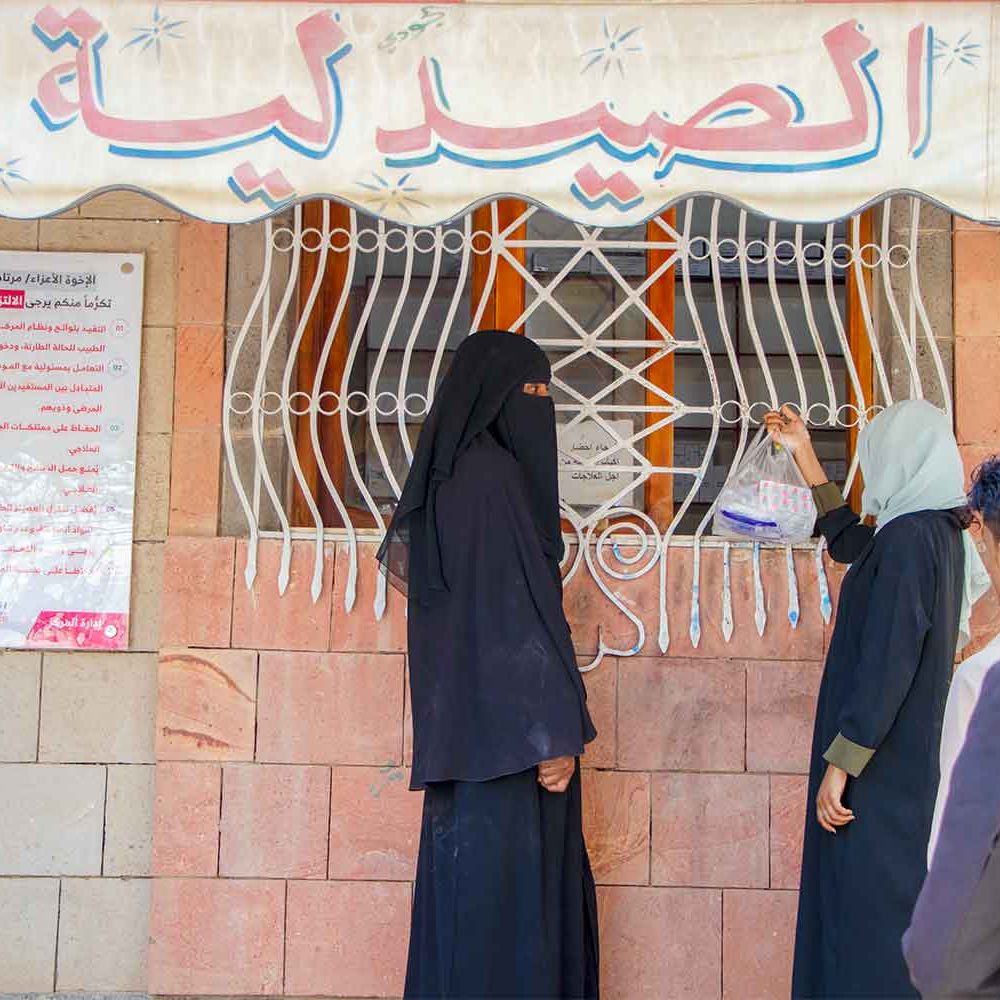
Pharmacy
The pharmacy plays a vital role by providing medications free of charge to patients. These include essential treatments such as iron chelation therapy—particularly for thalassemia patients—hydroxyurea for sickle cell anemia patients, and supportive medications like folic acid. It also dispenses pain relievers, antipyretics, antibiotics, intravenous solutions, and emergency drugs necessary for patient care.
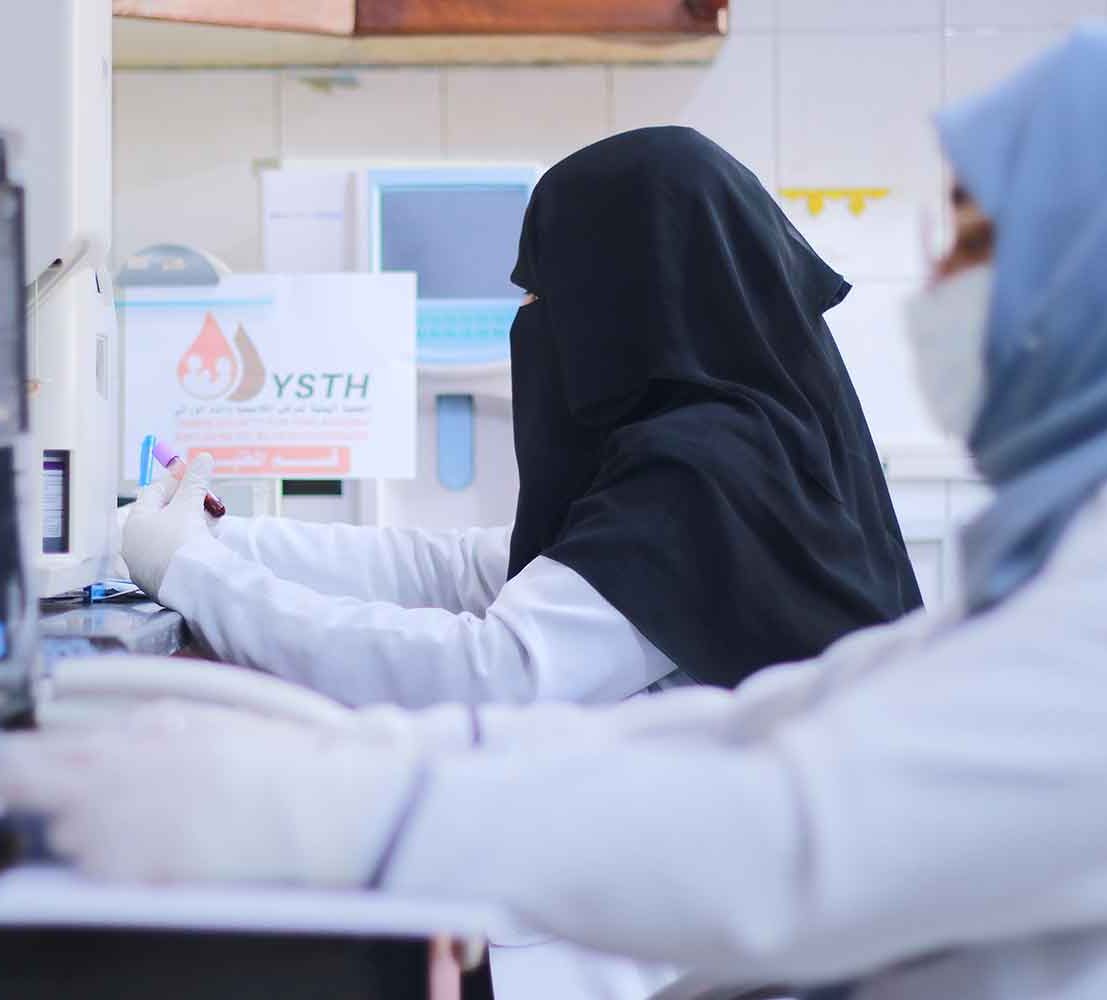
Laboratory
The laboratory department provides essential diagnostic tests for continuous monitoring of patients’ conditions. These include general blood tests, biochemical screenings (liver and kidney functions, blood sugar, cholesterol, calcium, iron levels), serum tests, and blood typing. We also aim to add other important tests, such as hemoglobin electrophoresis (Hb Electrophoresis test), among others.
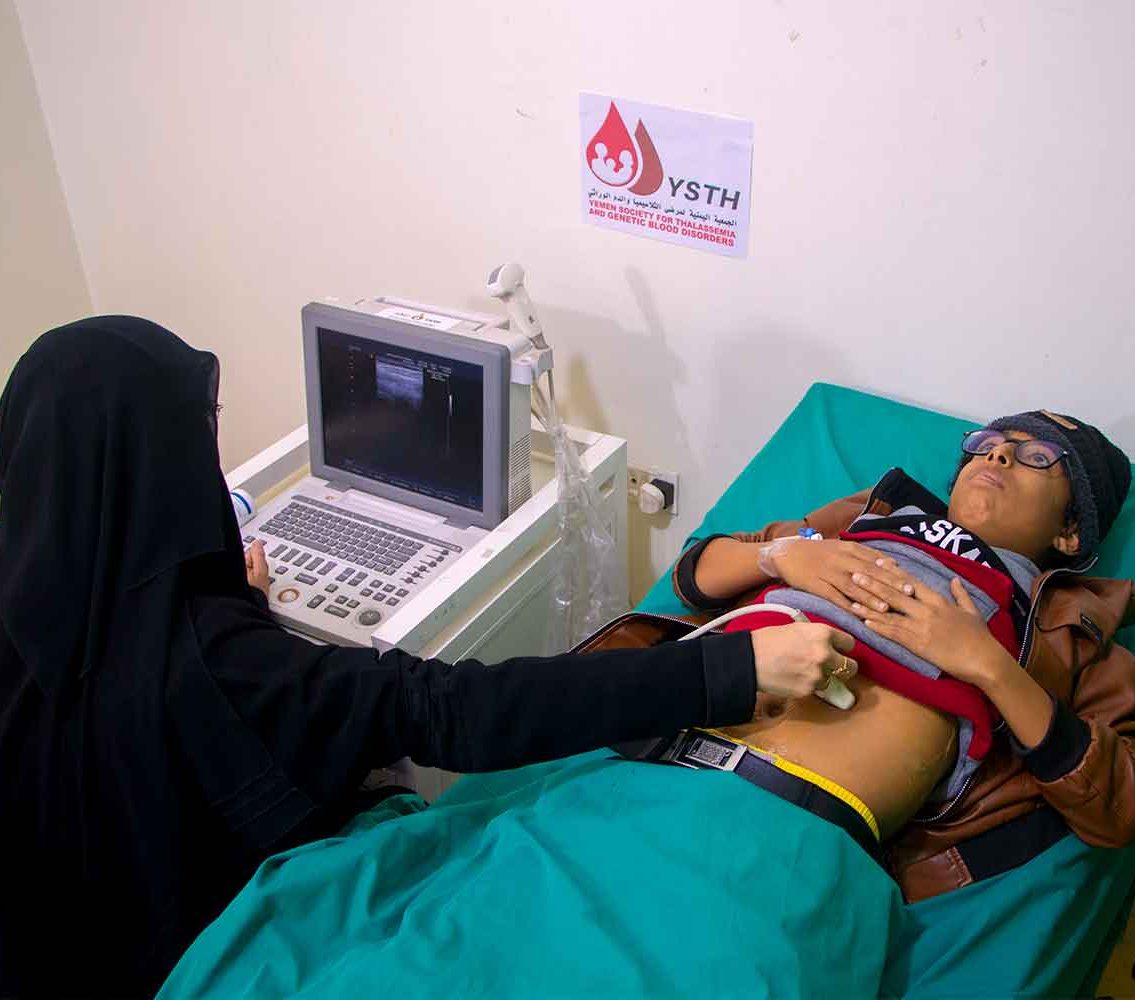
Ultrasound Imaging
The association has sought to provide ultrasound diagnostic services for patients within the center to alleviate their struggles in searching for this service in hospitals and diagnostic centers. This initiative also helps facilitate the work of physicians in diagnosis and treatment.
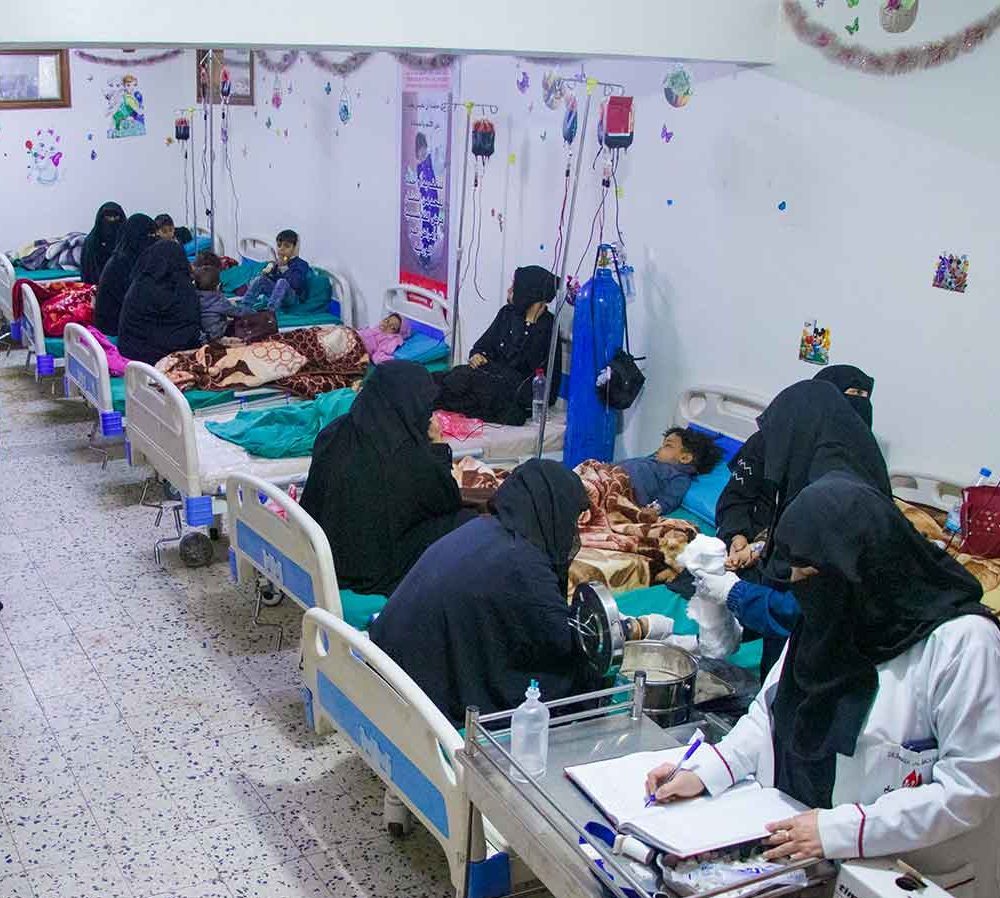
Emergency and Nursing Care
Some patients arrive in a state of severe exhaustion, complaining of pain and difficulty breathing. In this department, we provide essential nursing services such as drawing samples, inserting butterfly needles, administering intravenous fluids and medications, and oxygen therapy. Additionally, partial blood transfusion is performed as treatment for some sickle cell anemia crises. These services have been greatly appreciated by both patients and their families, leading to an increase in the number of patients seeking care daily. As a result, the center requires continuous support in terms of medical supplies, equipment, and resources..
